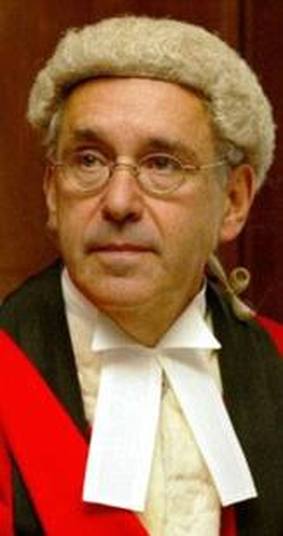Sir Alan Moses, judge who denounced 'lurid and sensational' Soham coverage, is new press regulator
 Sir Alan Moses: attacked Soham press coverage Sir Alan Moses: attacked Soham press coverage
Tuesday 29 April, 2014
The judge who oversaw the trial of Ian Huntley for the Soham murders in 2003 - and criticised the Press for its "lurid" pre-trial coverage - is to be the founding chairman of the Independent Press Standards Organisation. Sir Alan Moses was so angered by coverage of the case that he reportedly threw a pile of newspapers across the courtroom during a pre-trial hearing. Lord Goldsmith, who was Attorney General at the time, told a journalism law conference that coverage had been "frankly unacceptable". "Mr Justice Moses held that there could be a fair trial, but he was clearly very concerned about some of the coverage, which he described as 'stories written in emotional, sensational and lurid language," Lord Goldsmith said. "He sounded a clear warning that one day prejudicial reporting will actually prevent a high-profile case alleging a serious crime from being tried at all." Sir Alan's appointment to the £150,000-a-year post was announced this morning, and he immediately confronted head-on doubters who say that the new regulator backed by most newspapers cannot be truly independent, saying: "I have spent over 40 years pursuing the profession of barrister and judge whose hallmarks are independent action and independent judgment. I do not intend to do away with that independence now. Sir Alan, 68, who was once in chambers with Cherie Booth, prosecuted the failed Matrix Churchill case about the sale of arms to Iraq and was the presiding judge in the 2002 case of David Shayler, the former MI5 agent prosecuted for leaking secrets.
He instructed the jury to find Shayler guilty, saying that while it was true that Shayler had no other way to get his concerns aired, it was irrelevant, as the House of Lords had previously ruled that it was no defence to argue that classified information was leaked in the public interest. He sentenced Shayler to six months in jail. Sir Hayden Phillips, chairman of the Ipso appointments board, described Sir Alan as a person of experience and integrity, of independence and vigour, and also personable, approachable, and always open to consider new ideas. "With his reputation for being quick, forthright and fearless I believe that not only is he someone on whom the public can depend to tackle abuses by newspapers where they occur, (using the considerable new powers that will be vested in Ipso), but someone who also believes firmly in independent self- regulation of the press and in the vital democratic role of a free press in a free society." The Hacked Off organisation, which has campaigned for tougher curbs on press behaviour, said the appointment changed nothing. "The structure and operation of this 'Son of PCC' remain fatally flawed. The real power continues to be exerted by the big newspaper companies that have a veto over budgets, appointments, the code, investigations, sanctions or any arbitration scheme," its director Professor Brian Cathcart said. “Ipso – created with no public consultation whatsoever – is clearly designed to defy the recommendations of the Leveson Inquiry on independence, the wishes of all parliamentary parties and the views of the overwhelming majority of the public. "It is a dreadful insult to victims of press abuses, leaving in charge the same shadowy newspaper paymasters who called the shots at the discredited Press Complaints Commission... "The best thing Sir Alan Moses could do now is to advise the big newspaper companies to redesign IPSO so that it can meet the basic standards of independence and effectiveness set out in the Leveson royal charter." |
|
Royal charter looks dead in the water
The Press should be left to decide what it wants to do about setting up a new regulator and the Government should have no further role in the matter, the Culture Secretary Sajid Javid told the Times Murdoch accused of scaremongering A group describing themselves as victims of press intrusion has written to Rupert Murdoch accusing News UK of "digging itself into a hole of untrustworthiness" because it has not backed the royal charter system of press regulation 
" "Britain doesn't believe in freedom of the Press. You have to come to terms with this. Most of the world doesn't - and that includes you" - Michael Wolff at the Names Not Numbers festival in March Leveson: a £5m hiding to nothing We should learn from experience: public inquiries take forever, cost a fortune and rarely achieve anything The SubScribe view History, hysteria and hyperbole Freedom of the Press matters and the State should have no part in policing it. But pictures of Churchill and melodramatic headlines don't help The SubScribe view Hacked Off should back off "There is a strong public feeling that newspapers should behave better and that a new watchdog is required. There is an equally strong feeling that Parliament should have no part in deciding which breed" The SubScribe view |
Please sign up for SubScribe updates
(no spam, no more than one every week or two)
|
|
|




